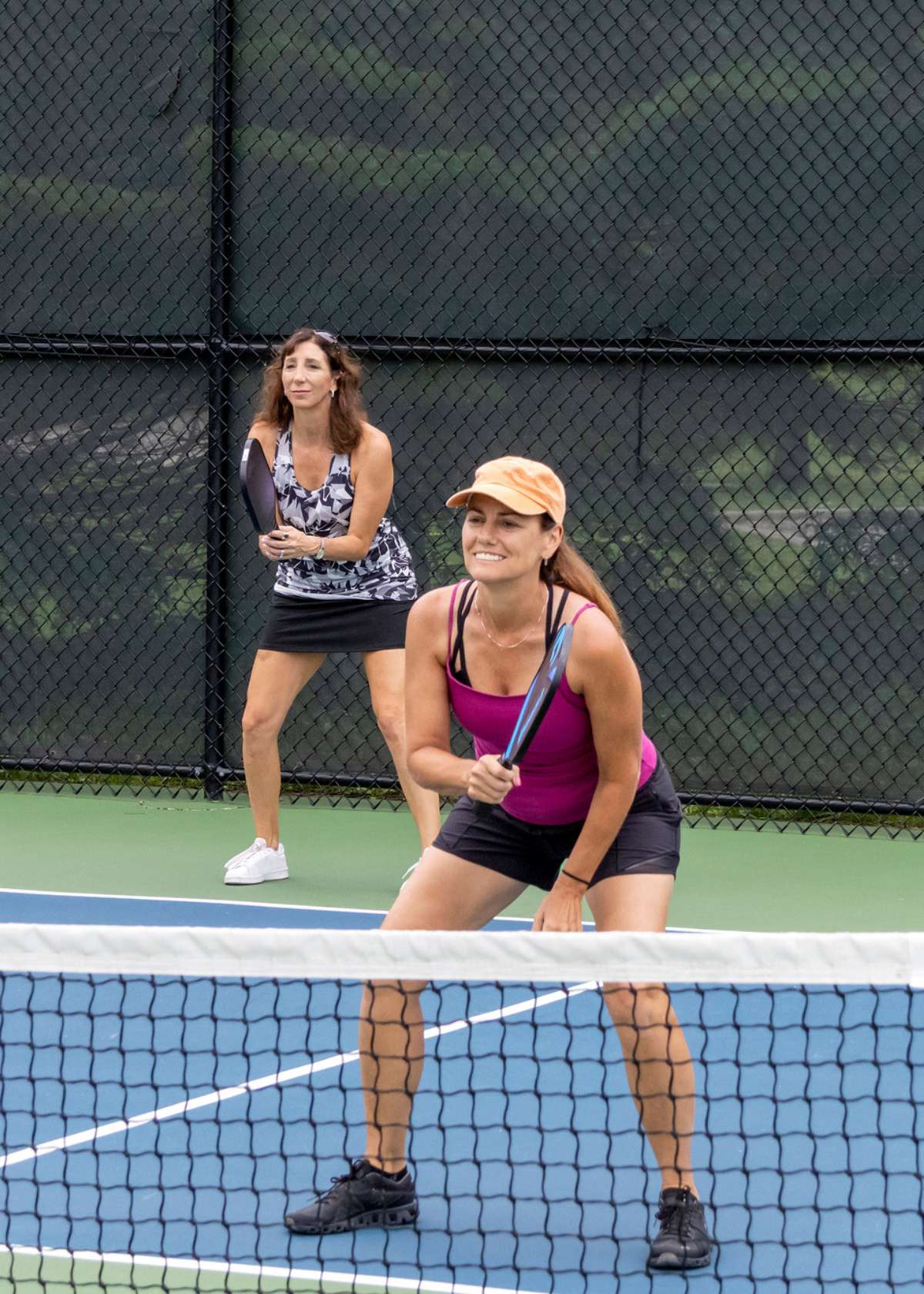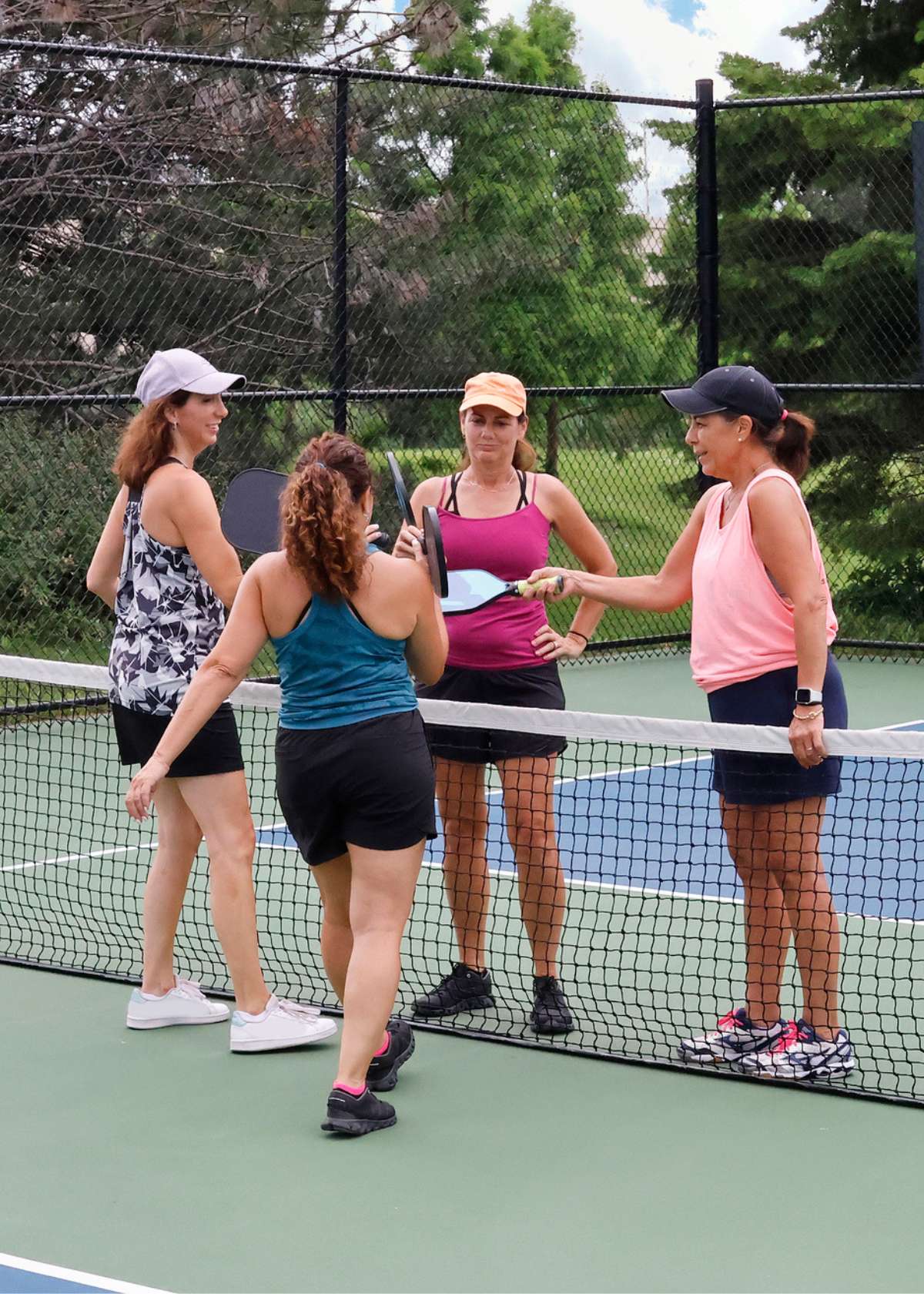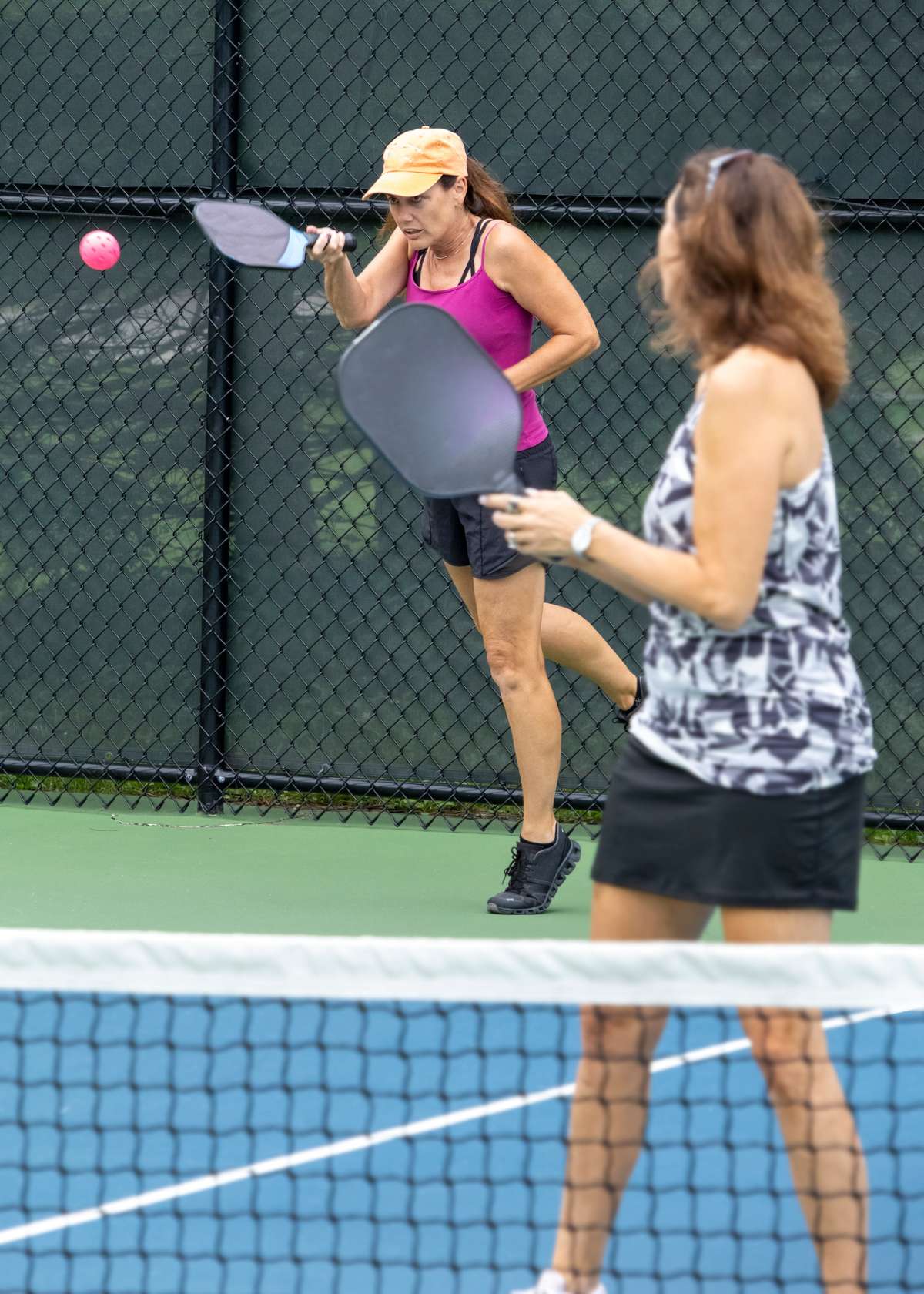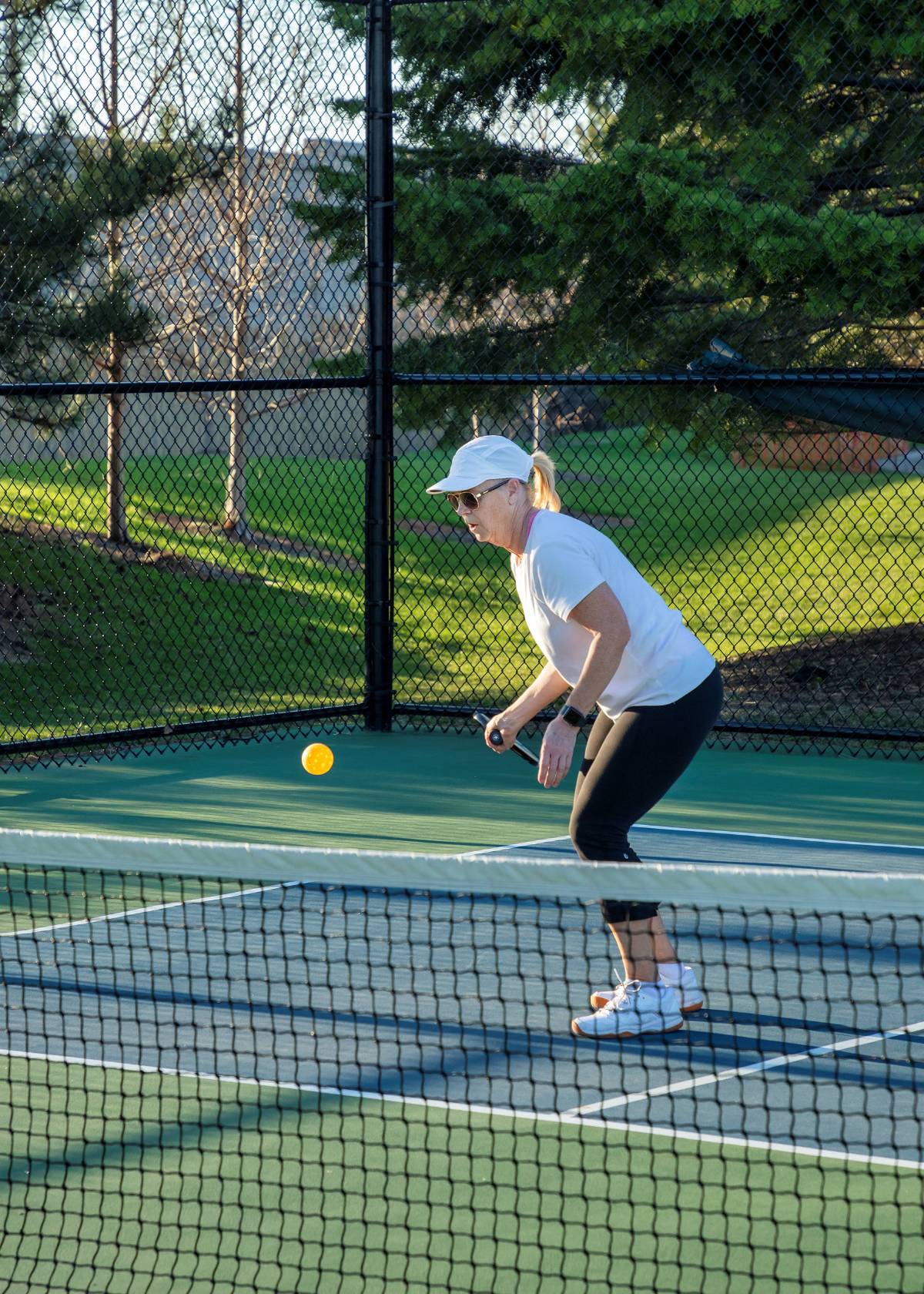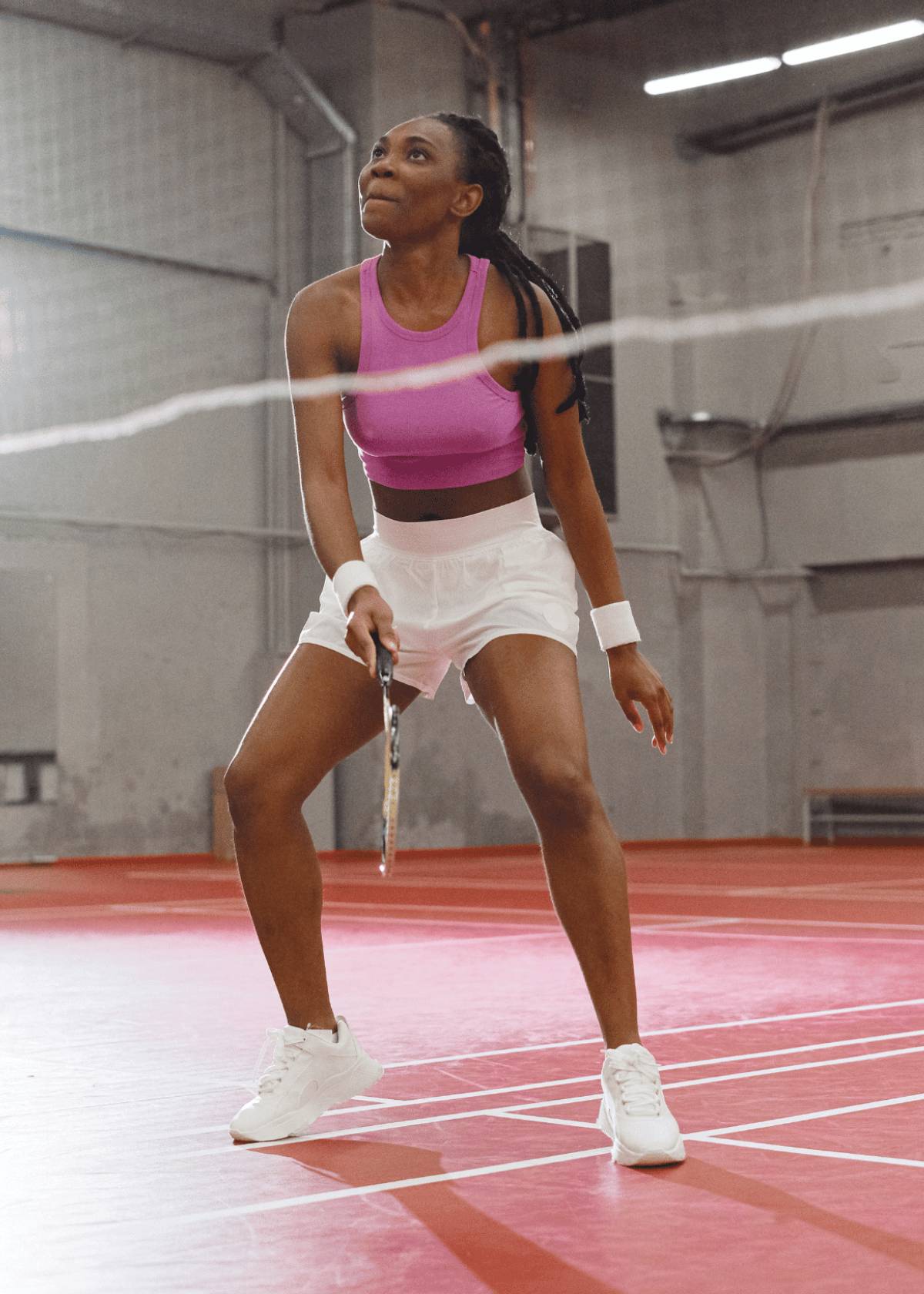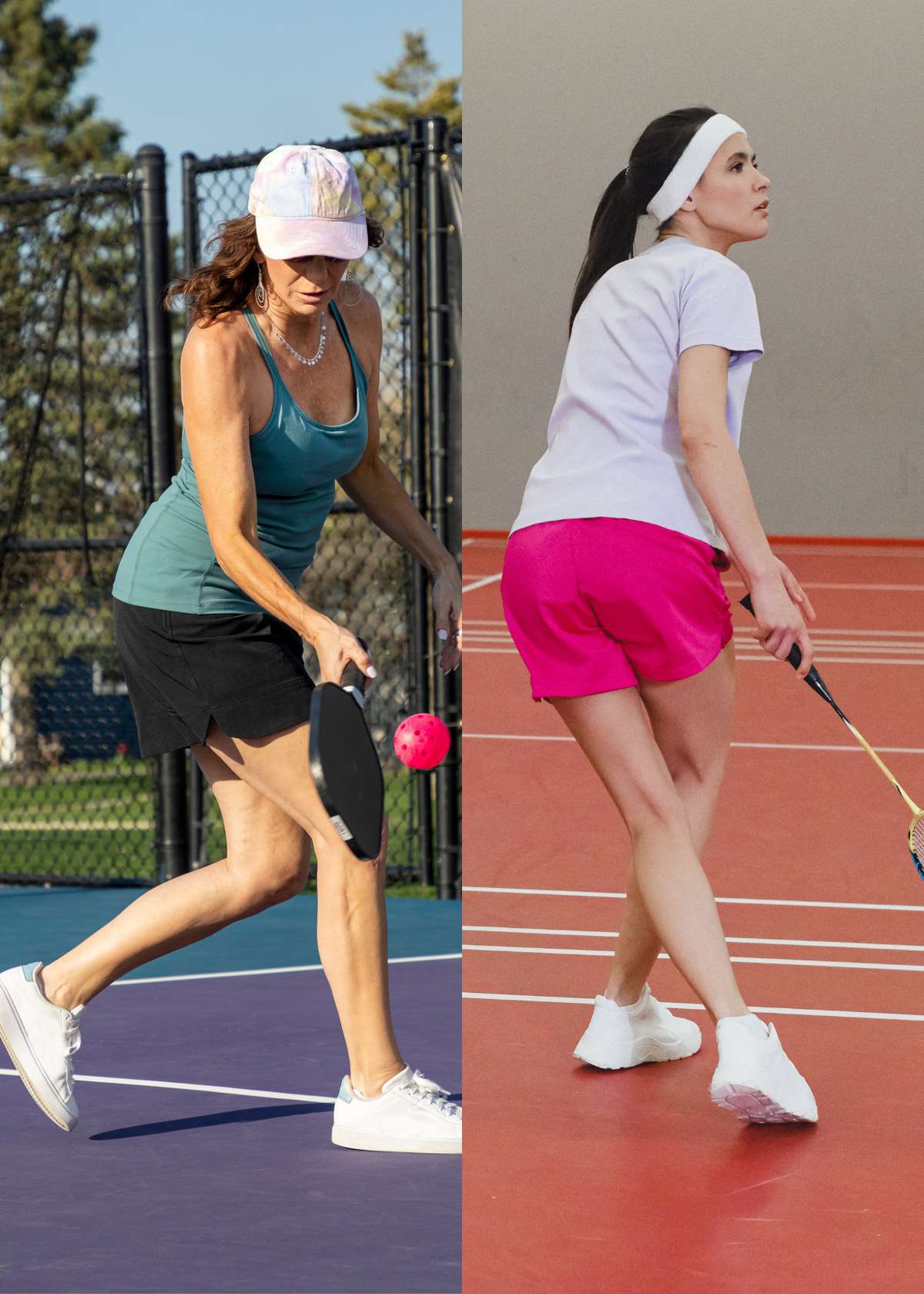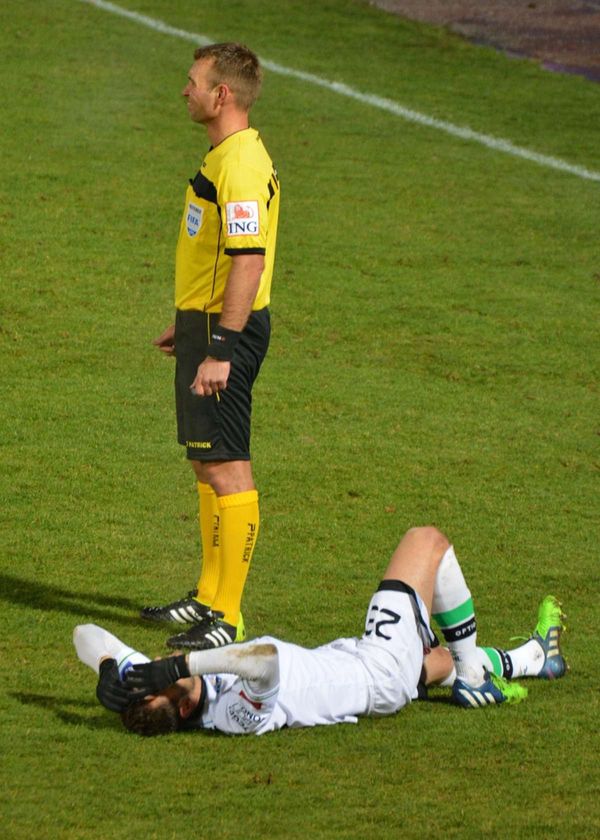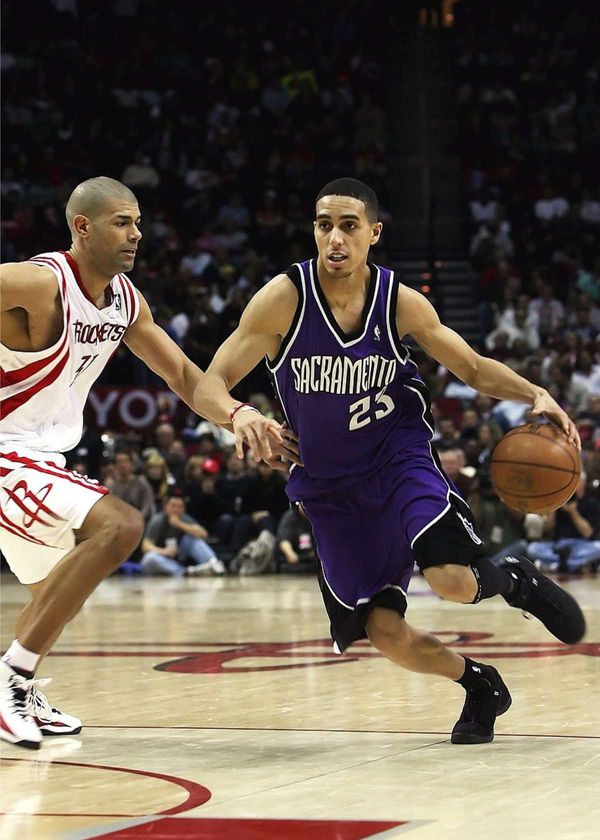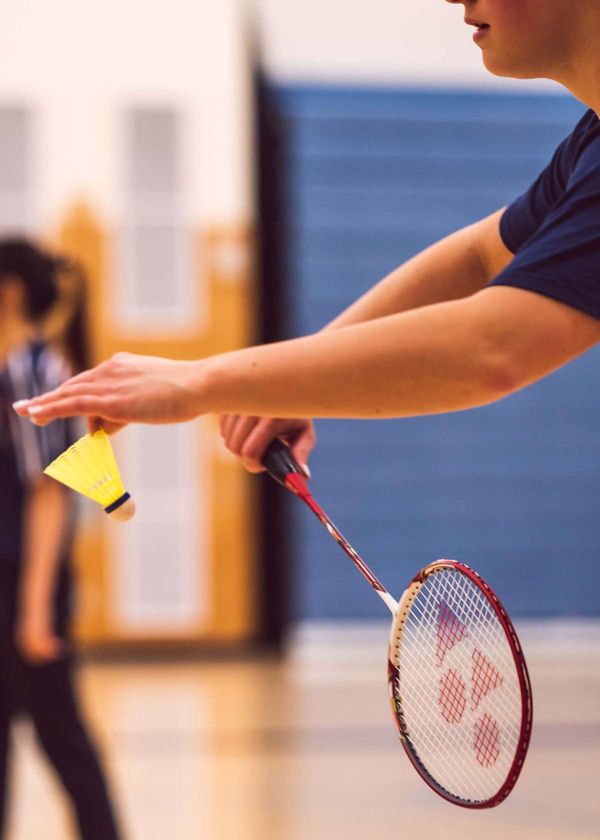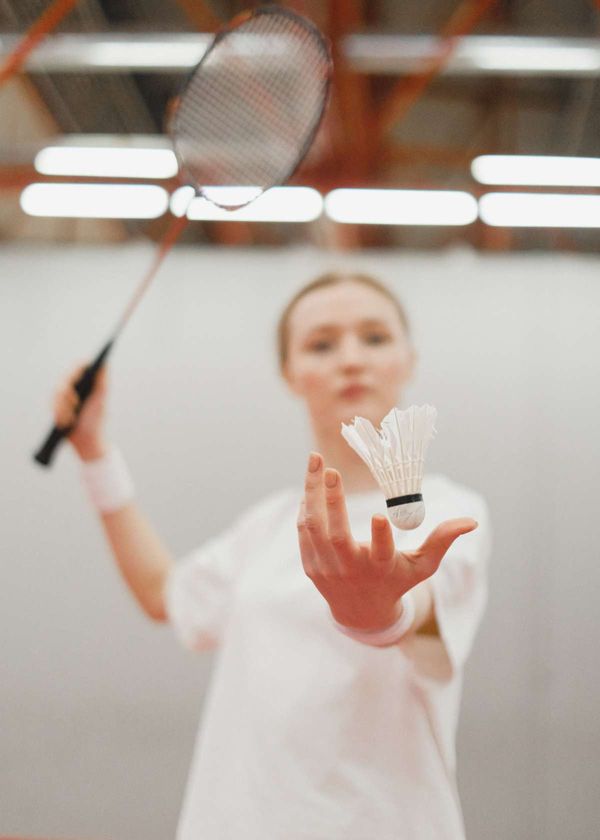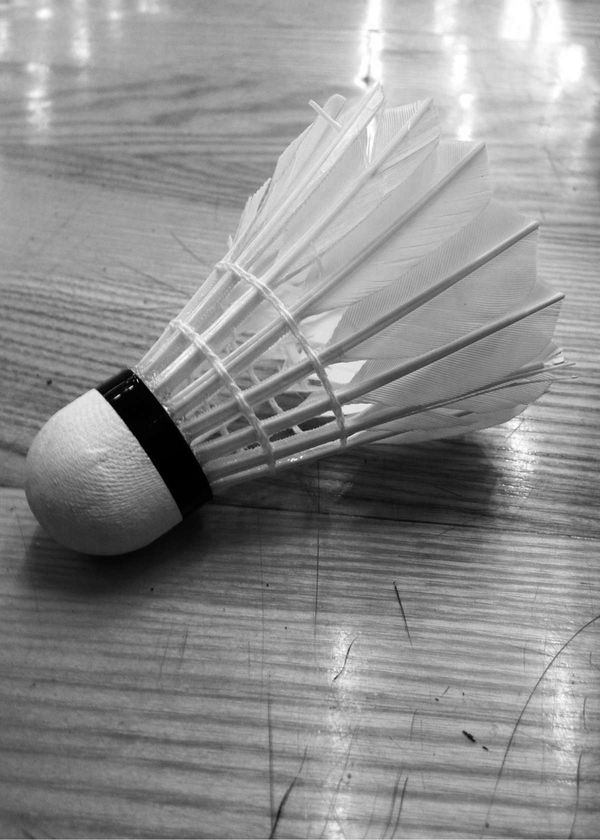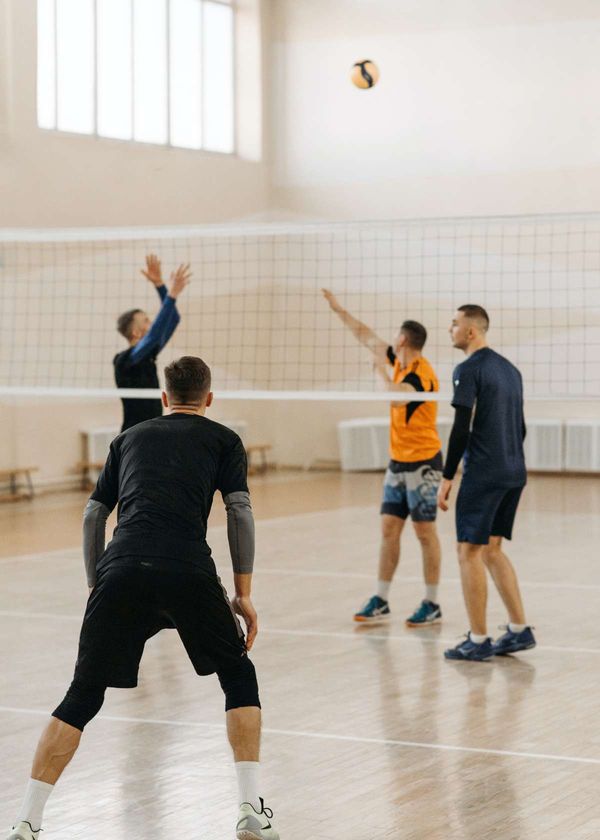Are you looking for a fun and exciting way to stay in shape? Consider giving pickleball or badminton a try! Both games are becoming increasingly popular, but what makes them both unique, and why should you commit your time to one of them?
In this blog post, we'll compare the two and take an in-depth look at what sets pickleball apart from badminton. Read on to find out which game is right for you!
History of Pickleball and Badminton
Origin of Pickleball
Pickleball was born out of ingenuity and boredom one summer in 1965 on Bainbridge Island, Washington. Three dads – Joel Pritchard, Bill Bell, and Barney McCallum — are credited with creating the game to keep their kids entertained.
They didn't have all the equipment for badminton, so they improvised with ping-pong paddles and a perforated plastic ball. Over time, the game evolved with its own set of rules, becoming the sport we now know as pickleball.
Origin of Badminton
Badminton, on the other hand, has a much older history. The game can trace its roots back to ancient civilizations in Europe and Asia, but the modern game of badminton was developed in the mid-19th century among the British upper class.
It's named after Badminton House in Gloucestershire, where it was first played. The game quickly spread across the globe and was officially included in the Olympics in 1992
In the following sections, we'll delve into the specific rules, scoring systems, and equipment required for each game. Stay tuned!
Rules of the Games
Basic Rules of Pickleball
Pickleball is a combination of tennis, badminton, and ping-pong, borrowing elements from each. The game is played on a court similar to a doubles badminton court with a net that's slightly lower. The basic rules are as follows.
- Serve diagonally across the court, underhand.
- Only the serving team can score points.
- The ball must bounce once on each side before volleys are allowed.
- There's a seven-foot no-volley zone on both sides of the net to prevent "spiking."
- A game is typically played to 11 points and must be won by at least two points.
Basic Rules of Badminton
Badminton is a racquet sport played using racquets to hit a shuttlecock across a net. The most significant rules include.
- The serve must be hit diagonally cross-court.
- Points can be scored by either side.
- The shuttlecock must pass over the net in one flight - no bouncing.
- Each game is played to 21 points; a match is the best of three games.
- Players switch ends of the court after each game.
Required Equipment
Equipment Needed for Pickleball
To play pickleball, you need a pickleball paddle, which is larger than a ping-pong paddle and smaller than a tennis racquet. It's typically made of lightweight composite materials, including aluminum and graphite. You'll also need a pickleball, which is similar to a wiffle ball but smaller. Lastly, a pickleball court with a net is required.
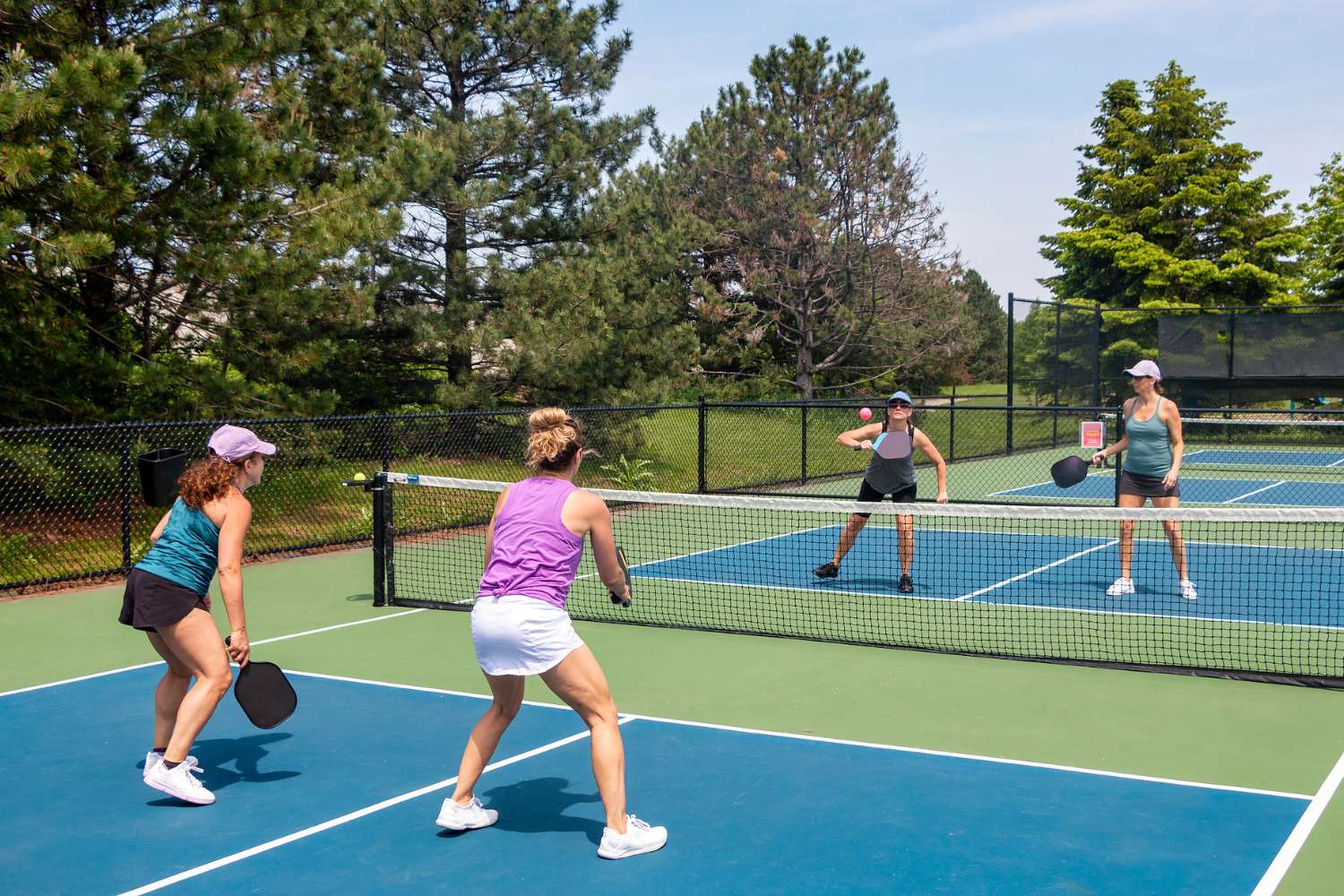
Equipment Needed for Badminton
For badminton, players need a badminton racquet, which is lightweight and has a long handle and a netted string area to hit the shuttlecock. The shuttlecock, or birdie, is a feathered projectile that flies differently from balls due to its aerodynamic design. A badminton court with a center net is also required.
Scoring System
How Scoring is Done in Pickleball
Pickleball utilizes a unique scoring system. Only the serving team can score points. The game begins with one player from the serving team serving the ball diagonally to the opponent's court.
If the serving team wins the rally, they score a point. If they lose, the other team gets the serve but doesn't score a point. Games are typically played to 11, 15, or 21 points, and a team must win by at least two points.
How Scoring is Done in Badminton
In badminton, a point is scored on every serve and awarded to whichever side wins the rally. Matches are played best of three games. Each game starts at 0-0 (also known as 'love-all'), and the side that first scores 21 points wins the game. If the score reaches 20-all, the side that gains a two-point lead first wins the game.
Strategies and Skills
Common Strategies in Pickleball
Pickleball strategies often revolve around controlling the net and forcing your opponent to make errors. Some common strategies include:
- Serve deep: Forces your opponent to hit upwards and allows you to take control of the net.
- Keep it low: Low shots make it harder for your opponent to attack.
- Use the slow game: A soft shot into the non-volley zone forces your opponent to back up, giving you time to get to the net.
Common Strategies in Badminton
In badminton, strategy can be the key to winning. Here are some common strategies:
- Mix up your shots: Variety in speed and direction can keep your opponent guessing.
- Master the short serve: A good short serve can give you an advantage in doubles play.
- Use all areas of the court: Make your opponent run and exploit open spaces.
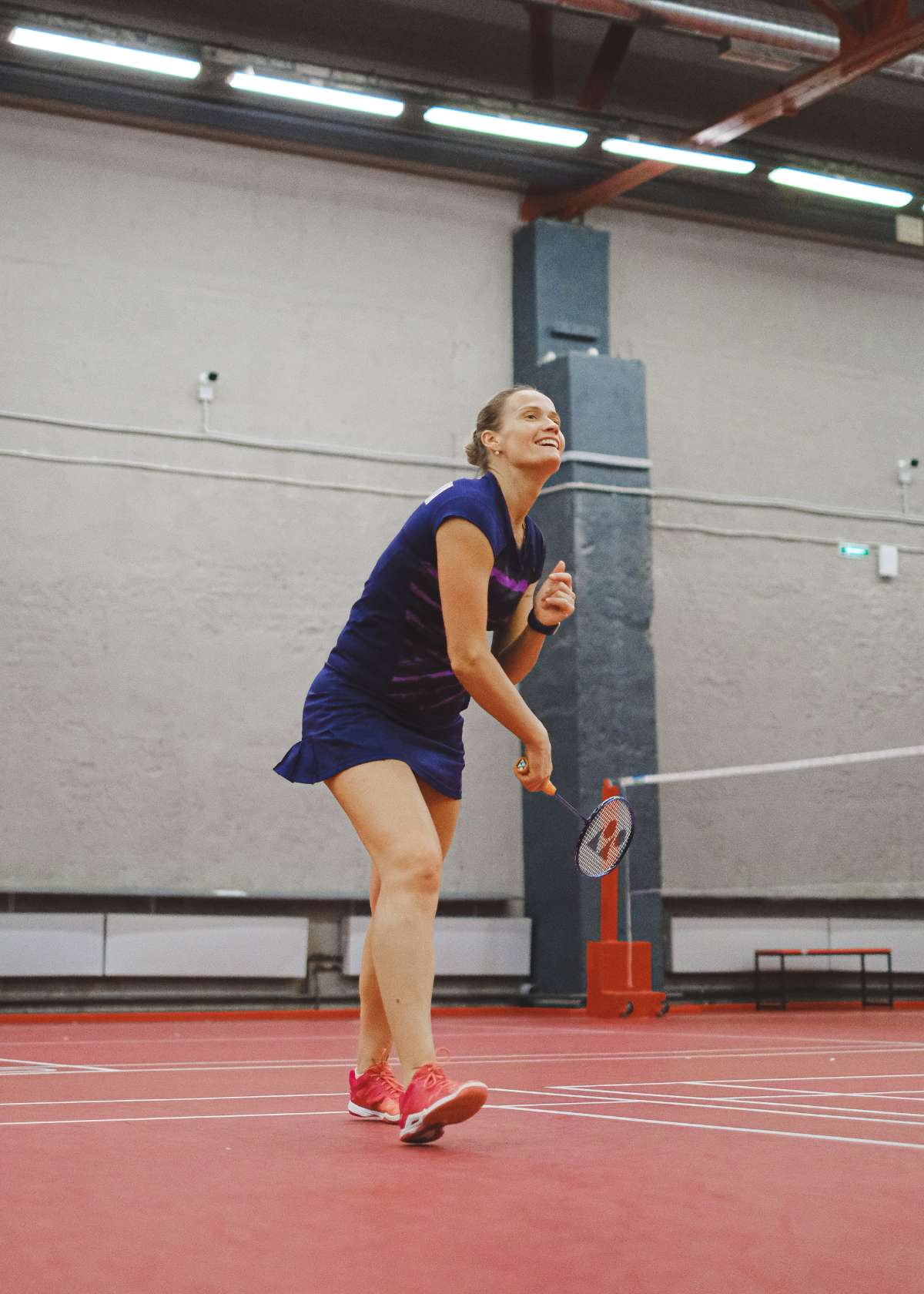
Key Skills Required for Each Game
In both pickleball and badminton, agility, hand-eye coordination, and strategic thinking are crucial. However, each sport also requires its own specific skills. In pickleball, players need to master the "dink" shot (a soft shot that arcs over the net), while in badminton, smashing and drop shots are key elements of advanced play.
Popularity and Professional Leagues
The popularity of Pickleball Worldwide
Pickleball has experienced a massive surge in popularity, particularly in North America. In the United States and Canada, there are over 200,000 and 60,000 registered players respectively.
According to a report by the Association of Pickleball, more than 36.5 million people played pickleball from August 2021 to August 2022.
The sport is also gaining traction in other parts of the world, including Australia. Middle-America pickleball hot spots like Kansas, Oklahoma, and Texas have been significant drivers of the sport's recent growth.
The popularity of Badminton Worldwide
Badminton is immensely popular worldwide, with its roots in Europe and Asia. It's especially beloved in countries like China, Indonesia, and Denmark. According to the Badminton World Federation, it's the second most played sport in the world, with over 220 million players globally.
Information on Professional Leagues for Both Games
There are several professional leagues for both pickleball and badminton. The Pro Pickleball Association and the Association of Pickleball Professionals host various tournaments throughout the year.
On the other hand, the Badminton World Federation oversees the top-tier international badminton events, including the BWF World Championships and the Super Series.
Duration and Format of the Games
Typical Duration of a Pickleball Game
The duration of a pickleball game can vary based on players' skill levels and the scoring system used. However, most games typically last around 15-25 minutes. Full-match play is usually a best-of-three game format, lasting around 45 minutes.
Typical Duration of a Badminton Game
A badminton match consists of the best of three games. Each game can last around 20 minutes, so a full match can take anywhere from 40 minutes to an hour.
Singles and Doubles Format in Both Games
Both pickleball and badminton can be played in singles or doubles format. In pickleball, the court size remains the same, but in badminton, the court's boundaries change slightly. In both formats, communication, and teamwork are crucial in doubles play, while footwork and shot accuracy are key in singles play.
Health Benefits and Common Injuries
Health Benefits of Playing Pickleball
Pickleball is a sport with numerous health benefits. It's a great cardio workout, potentially burning up to 600 calories per hour. The moderate-intensity exercise it provides can lower blood pressure, improve cholesterol levels, and regulate blood sugar.
Additionally, pickleball can enhance hand-eye coordination, general movement, and muscle strength. It's also a low-impact exercise, reducing joint and muscle strain.
Health Benefits of Playing Badminton
Like pickleball, badminton is also a great cardio workout. It improves aerobic fitness, with players often running over 1.6 kilometers during a match. It builds strength and muscle tone, especially in the legs, arms, and shoulder muscles.
It also improves reflexes, agility, and balance. Moreover, badminton helps in reducing stress and anxiety, and it can be an excellent social activity.
Common Injuries in Both Games and How to Avoid Them
Common injuries in both games include ankle sprains, knee injuries, shoulder injuries, and tennis elbow. To avoid these injuries, warming up before playing and cooling down after is essential. Regular strength and flexibility training can also help prevent injuries.
Additionally, wearing appropriate footwear and using the correct technique can reduce the risk of injury.
Getting Started with Pickleball and Badminton
Tips for Beginners Wanting to Play Pickleball
- Learn the Basic Rules: Understanding the basic rules is the first step towards mastering the game.
- Start with a Slow Game: Practice your shots and movements before jumping into fast-paced games.
- Get the Right Gear: Invest in a good quality paddle and balls suitable for beginners.
- Join a Local Club or Group: This is a great way to learn from more experienced players and get practice.
Tips for Beginners Wanting to Play Badminton
- Master the Basics: Start by learning basic shots like serve, clear, drop, and smash.
- Footwork is Key: Good footwork can give you an edge in the game. Practice moving around the court efficiently.
- Invest in Good Equipment: A good racquet and shuttlecocks can make a significant difference in your game.
- Play Regularly: Consistency is key when learning a new sport. Try to play regularly to improve your skills.
Conclusion
Pickleball and badminton are both exciting, dynamic sports that offer a host of health benefits and an opportunity for social engagement.
They each have unique scoring systems and strategies, which add to their appeal and challenge. Both sports are growing in popularity worldwide, with professional leagues and tournaments offering high-level competition.
Pickleball, a relatively newer sport, is gaining traction rapidly, especially in North America. Its simple rules and slower pace make it a perfect choice for people of all ages.
Badminton, on the other hand, is a globally beloved sport, particularly in Asian countries. It demands agility, power, and strategic thinking, making it a thrilling game to play.
While both sports offer fantastic cardio workouts and help improve coordination, they also carry risks of certain common injuries. Thus, proper warm-up, cool-down, and use of appropriate equipment are crucial to enjoy these games safely.
If you're a beginner looking to get started in either pickleball or badminton, remember that mastering the basics, investing in good equipment, and consistent practice is key. Joining local clubs or groups can also provide valuable learning opportunities and enhance your enjoyment of the sport.
In conclusion, whether you're looking for a fun way to stay active, a new hobby, or a competitive sport to master, both pickleball and badminton are excellent choices. So grab a paddle or a racquet and give them a try – you might just find your new favorite sport!
Frequently Asked Questions
1. How do the rules of pickleball and badminton differ?
Pickleball and badminton have different rules. In pickleball, the serving team must let the ball bounce once before returning it, which is known as the "double-bounce rule". The non-volley zone or "kitchen" is an area where volleys are prohibited.
In contrast, badminton has no such rule, and players can hit the shuttlecock before it bounces. Additionally, the scoring systems are different: while pickleball uses a "rally scoring" method, badminton uses a "traditional scoring" system.
2. What equipment is needed for pickleball compared to badminton?
For pickleball, you will need a paddle, which is larger than a ping-pong paddle but smaller than a tennis racquet, and a plastic ball with holes similar to a wiffle ball. For badminton, you'll need a racquet, which is lighter and has a smaller head than a tennis racquet, and a shuttlecock, also known as a birdie.
3. How is scoring done in pickleball versus badminton?
In pickleball, only the serving team can score points. The game is usually played to 11 points, and the team must win by at least two points. In badminton, either the server or receiver can score points (rally point system), with games typically going to 21 points.
4. Which game is more physically demanding, pickleball or badminton?
Both games provide good physical activity, but badminton is generally considered more physically demanding due to its faster pace. However, the intensity can vary widely depending on the players' skill levels and the competitiveness of the game.
5. What are the key skills required for pickleball and badminton?
Key skills for pickleball include hand-eye coordination, agility, strategic placement of shots, and a good serve. For badminton, agility, power, accuracy, strategic shot placement, and a strong serve are essential. Both sports also require good footwork.
Unleash your game with revolutionary pickleball and badminton gear! Dive into the top-rated items that are dominating the court.
Explore our extensive collection of pickleball, badminton, and sports & fitness blog posts! Don't miss out!
